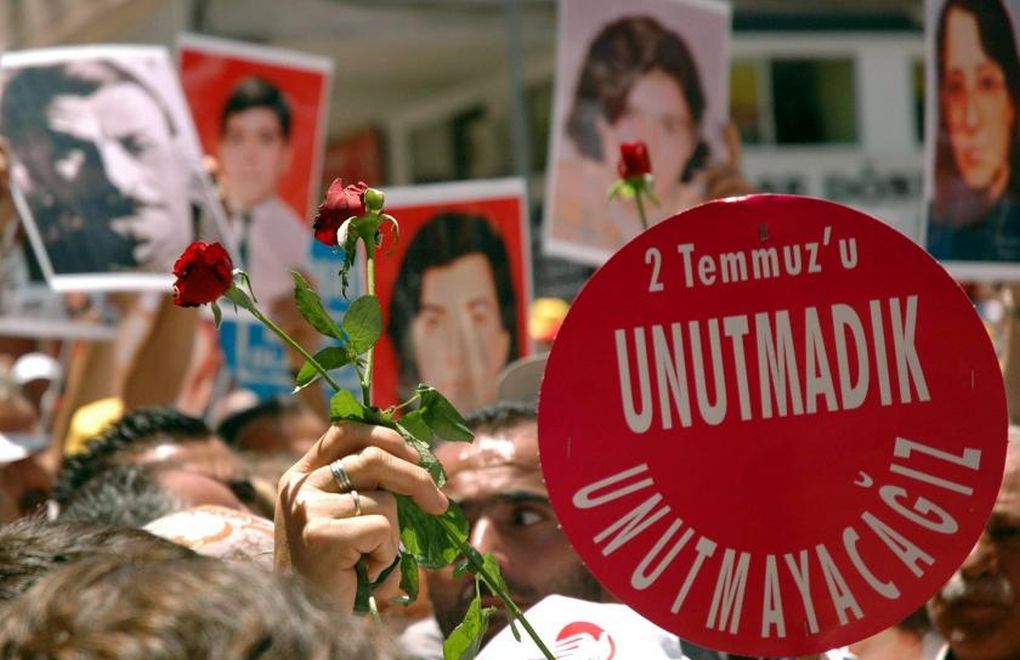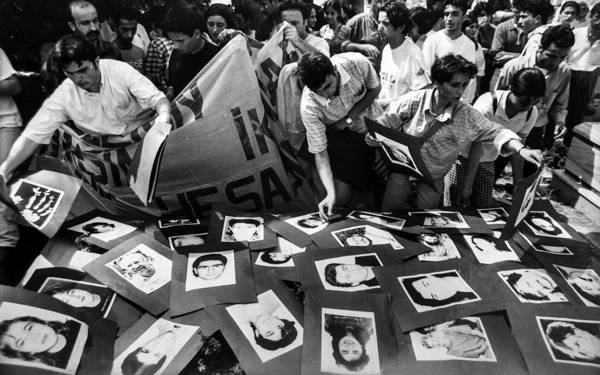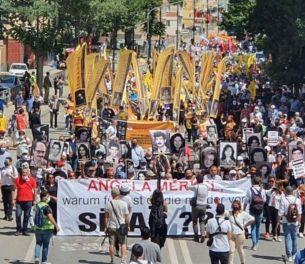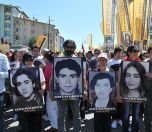* Photo: AA - File
Click to read the article in Turkish
In the trial over the Sivas massacre, where the charges had been dropped due to the expiry of statutory limitations in the main trial, the 26th hearing of fugitive defendants Murat Sonkur, Eren Ceylan and Murat Karataş, whose case files had been separated from the main trial, was held at the Ankara 1st High Criminal Court yesterday (January 19).
According to the response of the National Intelligence Organization (MİT) Presidency to a previous written correspondence, fugitive defendants Ceylan and Karataş could not be found in their addresses in Sivas. The Ministry of Culture and Tourism also replied to a previous written correspondence and noted that "no negligence of Ministry personnel was encountered".
As reported by Mezopotamya Agency (MA), Hüseyin Karababa, who lost his sibling in the massacre, said that "Alevis were subjected to a genocide with successive massacres in Koçgiri, Dersim, Ortaca, Maraş, Malatya, Çorum, Sivas and İstanbul's Gazi Neighborhood."
Hüseyin Karababa said:
"This genocide case will be taken to international criminal courts in the upcoming process. We had defendant İhsan Çakmak caught while he was working at the İstanbul Metropolitan Municipality and he was jailed. He came through the front door and you let him out from the back door. Afterwards, the defendant started working at the İstanbul Metropolitan Municipality again, which shows that the state protects the defendants of this case."
The then PM 'has the biggest responsibility'
Further in his statement, Karababa underlined that the Sivas massacre was a crime against humanity and, therefore, the expiry of statutory limitations could not be the case in this trial, adding, "Moreover, we do not believe that defendant Cafer Erçakmak died."
Karababa's lawyer Özgür Piroğlu also said that the then Prime Minister Tansu Çiller "is one of the people with the biggest responsibility for the massacre." Piroğlu demanded that Sönmez Köksal, who was the National Intelligence Organization (MİT) Undersecretary at the time of the massacre, Mehmet Ağar, who became the Director General of Security after the massacre, and Ahmet Karabilgin, who was the Governor of Sivas at the time, be heard as witnesses as part of the trial.
'They fled in an organized manner'
Lawyer Şenal Sarıhan also said that a fair trial was not the case in the trial and justice was not served, underlining that the blame for the massacre should not solely be put on a group of "freebooters":
"It was an organized and planned massacre organized by reactionist organizations. It was not revealed which organizations they were.
"The defendants sentenced to capital punishment became the ones released the first and they fled abroad in an organized manner. We are faced with a very important duty and responsibility. Murat Sungur is in Germany. I request the extradition of the defendants and, if not, I request that you take action to ensure that they stand trial there for this crime."
No need to hear Ağar as a witness
Following the statements of defense, the court has handed down its interim judgment and rejected Piroğlu's request for hearing Sönmez Köksal, Mehmet Ağar and Ahmet Karabilgin as witnesses at court on the grounds that "their witnessing will not affect the ruling."
The next hearing will be held on April 20.
About Sivas Massacre and its judicial process
On July 2, 1993, 37 people, including 33 artists and writers, 2 hotel workers and 2 attackers, lost their lives in the fire that started at Madımak Hotel in Sivas. 33 intellectuals were there to attend the Pir Sultan Abdal festivities. 65 people, including 14 police officers, got wounded in the fire.
124 people were arrested in relation to the fire. In the seven-year trial process, 33 people were sentenced to death and 85 people were given prison sentences of 2 to 15 years. 37 defendants were acquitted. The death sentences of 33 people were converted to aggravated life sentences.
On March 13, 2012, the Ankara 11th Heavy Penal Court dropped the charges of the Sivas Massacre trial in line with the prosecutor's demand to apply the statute of limitations to the case.
As the 9th Penal Chamber of the Court of Cassation upheld the verdict on violation of statute of limitations, lawyer Şenal Sarıhan took the case to the Constitutional Court in 2014. However, the court has not yet announced its judgment. In response, lawyer Sarıhan has appealed to the Constitutional Court regarding the long judicial processes. (RT/SD)






.jpg)
.jpg)

scs.jpg)
